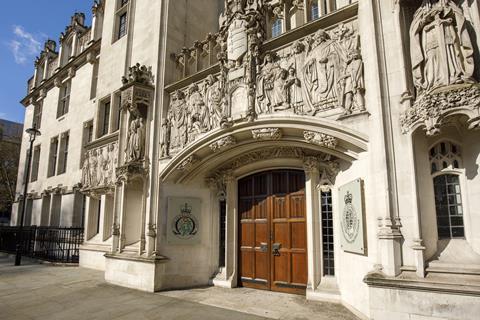A person under a criminal investigation has a reasonable expectation of privacy before they are charged, the Supreme Court ruled today in a decision which effectively confirms the ‘general rule’ of pre-charge anonymity.
The UK’s highest court unanimously dismissed an appeal by financial news service Bloomberg over its reporting of an investigation by an unnamed UK law enforcement body into allegations of corruption, bribery and fraud by a company in a foreign country.
The chief executive of a regional division of the company, known as ZXC, sued Bloomberg for misuse of private information after it reported details of a letter of request sent to a foreign government seeking mutual legal assistance in relation to the investigation.
He was granted an injunction and damages of £25,000 in respect of Bloomberg’s article, a decision upheld by the Court of Appeal which held that a person under investigation generally has ‘a reasonable and objectively founded expectation of privacy’ about the fact of the investigation.

At a hearing last year, Bloomberg argued that those decisions were inconsistent with previous rulings on the public’s understanding of the presumption of innocence.
However, the Supreme Court said that the presumption of innocence ‘is a legal presumption applicable to criminal trials’, whereas the context for a claim for misuse of private information is different.
‘In this context, the question is how others, including a person’s inner circle, their business or professional associates and the general public, will react to the publication of information that that person is under criminal investigation,’ Lords Hamblen and Stephens said in their ruling.
They added: ‘The person’s reputation will ordinarily be adversely affected causing prejudice to personal enjoyment of the right to respect for private life such as the right to establish and develop relationships with other human beings.’
The Supreme Court also rejected Bloomberg’s argument that the basis for a general rule of a reasonable expectation of privacy – what the Court of Appeal referred to as ‘the human characteristic to assume the worst’, that ‘there is no smoke without fire’ – was contrary to well-established principles in defamation law.
A further argument that the courts below incorrectly held that information about an individual being investigated is ‘private because it is potentially reputationally damaging’ was also dismissed.
A spokesperson for Bloomberg News commented: 'We are disappointed by the court's decision, which we believe prevents journalists from doing one of the most essential aspects of their job: putting the conduct of companies and individuals under appropriate scrutiny and protecting the public from possible misconduct.'



























5 Readers' comments